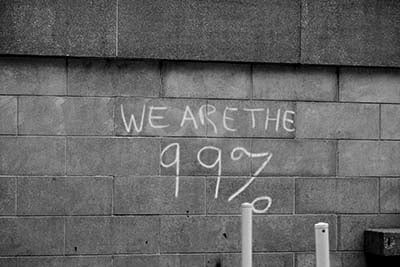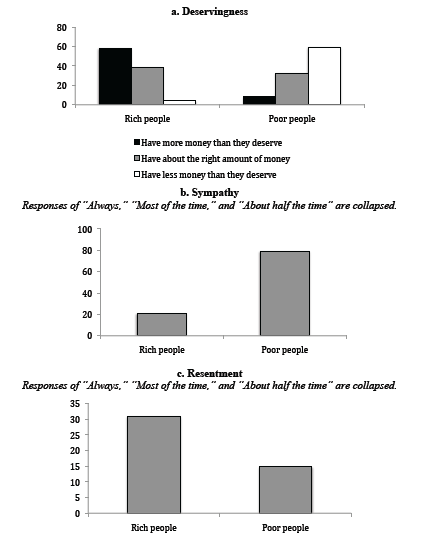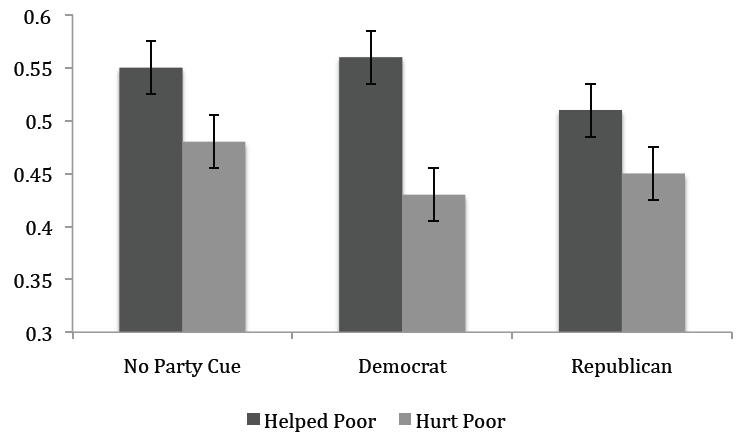Post developed by Katie Brown and Spencer Piston.
The gap between the rich and poor in the United States is growing. Occupy Wall Street, fast food worker strikes, and other manifestations of this gap make headlines often. And just a few weeks ago, President Obama visited the University of Michigan to champion raising the minimum wage.
Despite these movements, previous academic work suggests Americans look down on the poor. The news media perpetuate this message. The Economist claims, “Americans want to join the rich, not soak them,” while The New York Times published an article with the headline, “New Resentment of the Poor.”
But what if previous research and the mainstream media are wrong? What if anti-rich movements better capture the American ethos? Center for Political Studies (CPS) affiliate and Ph.D. candidate in Political Science at the University of Michigan Spencer Piston investigated this issue.
Piston addresses this question with an innovative approach. Previous scholarship measures attitudes with questions about “economic inequality” and “government-led redistribution.” But these are terms that survey respondents rarely use without prompting, and Piston finds reason to believe that many Americans don’t understand what these terms mean.
Piston therefore begins with a straightforward but rarely-used survey technique: he asks people how they feel about the poor and the rich. Piston examines answers to these questions using an original survey, and supplemented with American National Election Studies (ANES) data. The graphs below depict feelings of (a) deservingness, (b) sympathy, and (c) resentment toward and the rich and the poor. As we can see, people tend to see the rich as deserving less and the poor deserving more. They also see the poor as more sympathetic than the rich, and the rich as objects of more resentment than the poor.
Feelings toward the Rich and Poor
a. Do the (rich, poor) have more or less money than they deserve?
b. How often have you felt sympathy for (rich, poor) people?
c. How often have you felt resentment toward (rich, poor) people?
What effect might these Robin Hood attitudes have on elections? Piston tested this with several survey experiments. He finds that that a candidate who supports the poor garners more support among voters than an otherwise identical candidate who hurts the poor, regardless of the candidate’s party.
Effects of Candidate’s Record on Mean Support for the Candidate
Taken together, these results suggest that previous research has overestimated public support for economic inequality and public opposition to downward redistribution. When survey questions are worded using terms that survey respondents more commonly use, it appears that many Americans want government to give more to the poor – and to take from the rich.
Spencer Piston will join Syracuse University in the fall as an Assistant Professor of Political Science.




